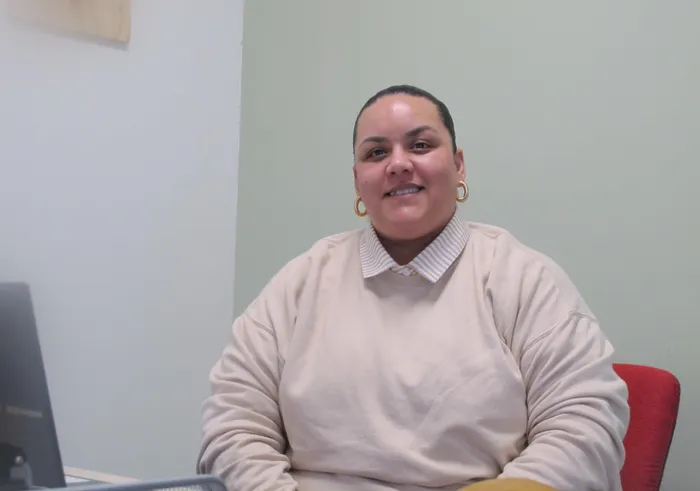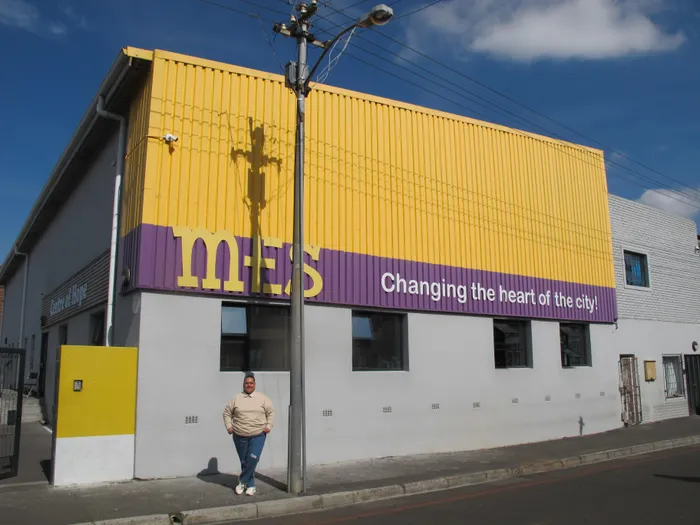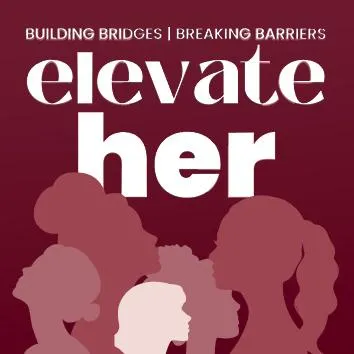Mitchells Plain woman turns her struggles into hope for homeless people battling addiction

Manager of the Parow Centre of Hope, Natasha Mentoor, shared her journey of resilience and growth.
Image: Sibulele Kasa
She once spent years trapped in addiction, hiding from her family and herself. Now, Natasha Mentoor uses her experiences to guide homeless people through recovery, proving that even the darkest chapters can lead to a life of purpose and hope.
As manager of the Parow Centre of Hope, she encourages women to celebrate their power and pursue a world where every woman can flourish.
Having stepped into her role at the centre in January, she reflected on her own life experiences in an interview with Northern News.
Her turning point came at age 24, after five years trapped in addiction, when her mother discovered drugs hidden in her bedroom.
“I remember coming from a party one night, and my mother had found a stash of things. She confronted me. And it was, wow, I think it was the worst day of my life.
“If I'm going to be honest with you, I think all the times and all the years that I learned to hide things from her, she finally caught me. And to her, it was a big disappointment,” she said.
A wife and mother of two children, Ms Mentoor was born on August 31, 1983.
Her parents divorced when she was five, and she was raised by her father in Elsies River, occasionally visiting her maternal family, until she matriculated and moved to live full-time with them in Westridge, Mitchells Plain.
In 2001, after finishing matric at Marian RC Secondary School in Elsies River, she found herself stuck in limbo, as she could not figure out her calling and what she wanted to do with her life.
“I was trying to find myself in this very big world. And I actually found myself in a very dark place, because I became involved in drugs. When I look back today, I can't believe that I am where I am,” she said.
She left a networking and programming course at college after a year, realizing it was not the right path for her.
Ms Mentoor then found herself moving from one call centre to another for five years between 2002 and 2007, a time in which she met friends who introduced her to drugs, such as cocaine, crystal meth, and ecstasy.
“These were young people I was working with. I mean, we were youngsters. And this is where I got to meet the wrong people, the wrong crowd. I ended up at parties I shouldn't have been at.
“I met a guy and fell in love. I went down the wrong road with, yeah, substance. And things just took a turn, you know, for the worse. And I think I was on substance from age 19 up until I was about 24 years old.”
Ms Mentoor was never arrested or found herself in traumatic situations, even though she still wonders how she survived being surrounded by drugs and sometimes by gangsters.
When her mother discovered the drugs, she gave her an ultimatum: give them up and remain part of the family, or walk out and never return. She chose her family.
She was eventually forgiven, but only after facing a fierce rebuke from both her parents.
“My mother said to me, ‘We are going to do this together.’ It was tough. It was hard. It was really hard keeping off substance. I started staying away from everyone. Kind of just removing everyone out of my life that needed to be removed. It took me three months to find my feet. I laugh at it today because, you know, if I think about it, it's crazy.”
Her mother told her she would not be sent to a rehab facility, as some family members were not informed.
Ms Mentoor also reconciled with her father and began working as an administrative assistant in his marine engineering company in 2007, a role she held until the business was forced to close during the hard lockdown in 2020.
However, the South African Depression and Anxiety Group reported on Tuesday, June 24, that their Substance Abuse Helpline received more than 158 000 calls from people throughout the country seeking help for themselves or a loved one in the past 12 months.
The majority of the calls received were from Gauteng (23%), KwaZulu-Natal (17%), and Western Cape (16%).
45% of the calls received were from youth (aged 13 – 35 years old), and 54% were from women, and the main substance use trends amongst youth included alcohol, marijuana, heroin, nyaope, and TIK/crystal meth.
After Ms Mentoor was laid off, she still had to survive and pay for children’s expenses, installment for her vehicle and home loan repayment, all while she was laid off. Her husband was also laid off at his workplace.
She then turned to helping her aunt feed the community with her non-profit organisation during lockdown, an experience that showed her the love she had for ordinary people.
She joined The Haven’s Night Shelter in Kalk Bay as operations manager in May 2022, a role she held until November last year, when she resigned to undergo an operation.
At the Parow Centre of Hope, she now manages a program with 50 homeless participants, 20 women and 30 men, while also accommodating walk-ins seeking a place to sleep.
The centre is run by Mould Empower Serve (MES), an organisation dedicated to helping the homeless. Using a four-phase approach, the team works closely with social workers to assess clients, assist them in finding work and becoming self-reliant, and ultimately reintegrate them into society. Many of the clients also face challenges with drug addiction.
“I use my story as a testimony when I talk with people in our program. I often tell them that if MES were around during my time, I would have grabbed the opportunity with both of my hands because it was rare to find these opportunities,” Ms Mentoor said.
Asked for a women’s month message, she said: “You are strong, capable, and deserving of all your dreams. Embrace your voice, celebrate your unique power, and build a world where every woman can thrive.”

Natasha Mentoor outside the Parow Centre of Hope.
Image: Sibulele Kasa

Elevating women.
Image: File